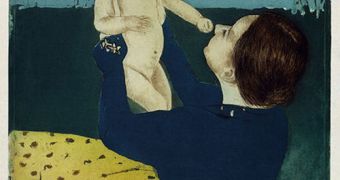For many years, actors and other stars were renowned for giving their children peculiar names. That is not to say that the names had not been heard before, but that they were seldom used until then. Now, a growing trend among the general population is for parents to name their children with more rarely-used names, moving beyond John, William, Mary and Anna that were so popular in the 1890s. Sociologists analyzing baby name trends say that more and more parents distance themselves from traditional names, which may see their children being ridiculed in school, or later on in life, LiveScience reports.
A new investigation seems to suggest that one of the primary factors driving parents' choices is their belief that a certain less-common name will grant their children the benefit of uniqueness and individualism. They feel that having a name that is different than the most widely-used would somehow set their own offspring apart somehow. This trend is minimal however in conservative religious communities, in which Biblical names still provide the main source of inspiration when thinking of a name for a newborn child.
The study also determined that the name James, for example, was very common in the 1950s. In fact, in the year 1950, it was the most popular name in the United States. This means that each class of first-graders, comprised of some 30 kids, was bound to have at least one James. However, by 2013, about six classes of students will be needed to find even on Jacob, even if this name was the most popular choice among parents of boys in 2007. According to the study, this change in parental view may in fact be a reflection of a larger societal paradigm shift, which sees emphasis moving from fitting in society to standing out through whichever means possible.
San Diego State University researcher Jean Twenge, who was a part of the investigation, says that the drawback to this is that each person understands the concept of being unique differently. When excessively applied, this may lead to narcissism and other similar behaviors, which may limit that person's interactions with his or her immediate group. The study focused on data collected from records of the Social Security Administration, gathered between 1880 and 2007. About 325 million baby names were surveyed, and their prevalence over the years gaged.
“It remains to be seen whether having a unique name necessarily leads to narcissism later in life. If that unique name is part of a parent's overall philosophy that their child is special and needs to stand out and that fitting in is a bad thing, then that could lead to those personality traits,” the expert adds. The scientists published the results of their study in a paper appearing in the January issue of the respected journal Social Psychological and Personality Science.

 14 DAY TRIAL //
14 DAY TRIAL //